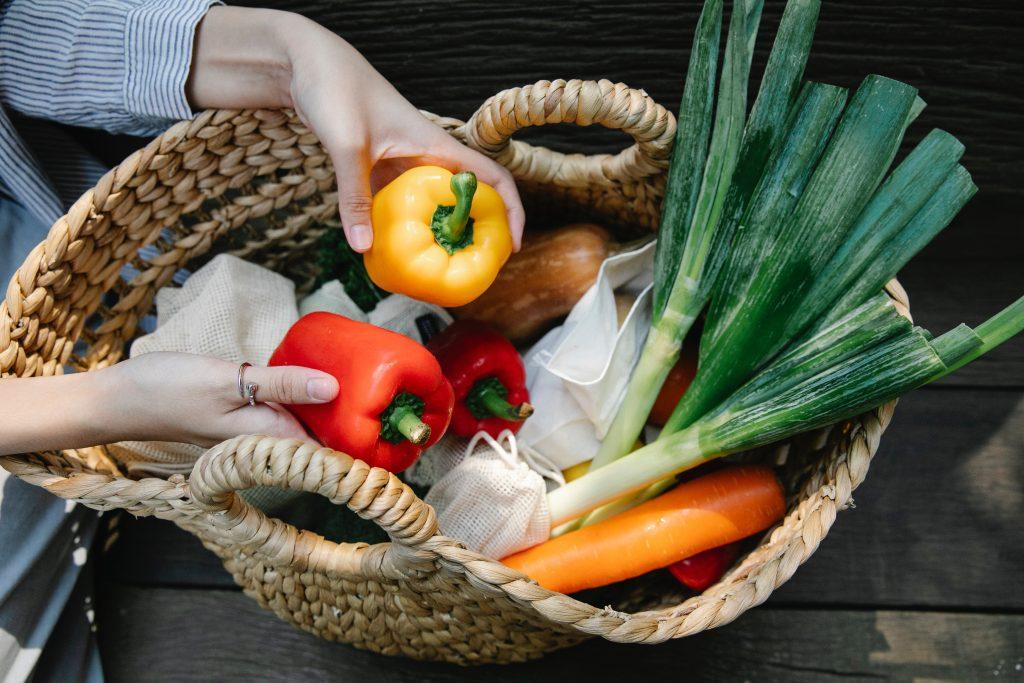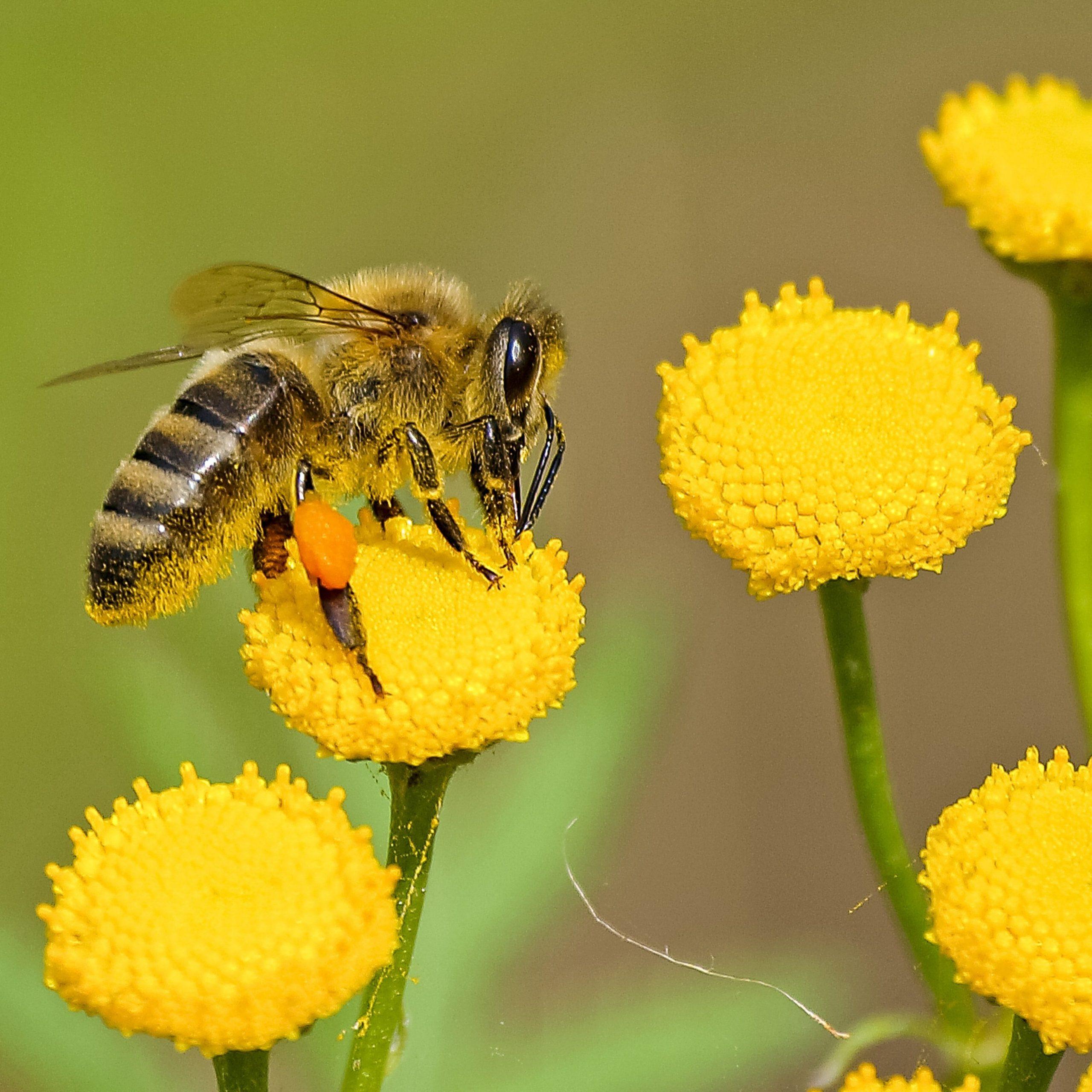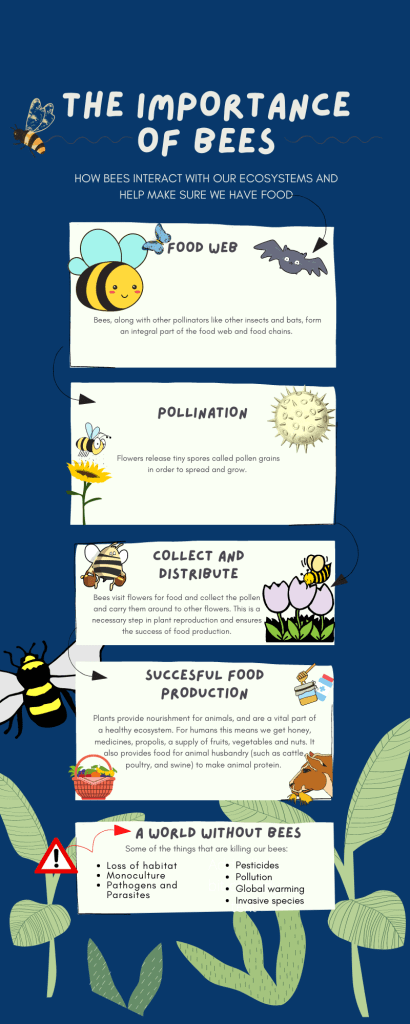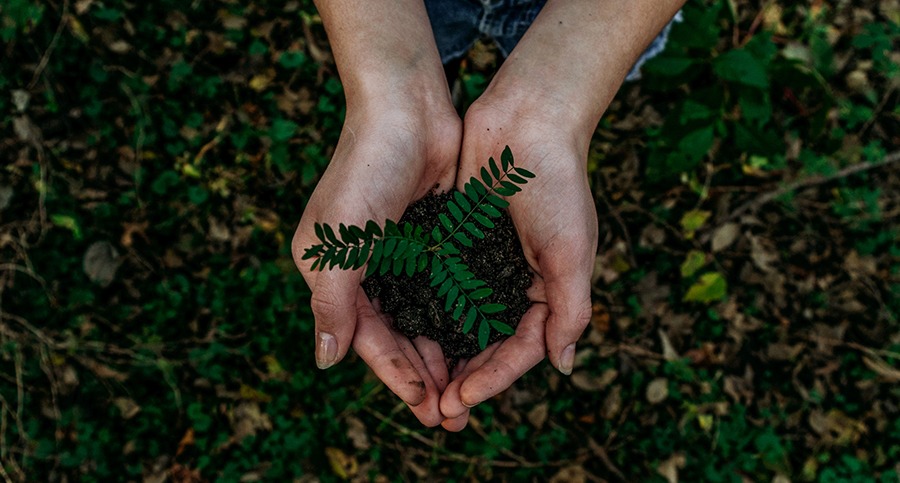Did you know that bee extinction has a direct influence on the world’s food production? Let’s explore why.
Bees are a fundamental species for the balance of ecosystem. They are of great importance in the pollination process, or in other words, the process of plant reproduction. Thanks to the presence of these pollinators, there is greater genetic variability. This is a fact important for the maintenance of species and their populations.
Bumble bees are the best pollinators we have in wild landscapes and the most effective pollinators for crops like tomato, squash, and berries.
Soroye, et al. 2020
There are more than 20,000 species of bees around the world. Similar to other animals, bees have co-evolved with flora over thousands of years and many are co-dependent. Unfortunately, the decline in the population of bees is more serious than imagined. In the last 15 years, colonies of bees have disappeared and the reason remains unknown. Known as “colony collapse disorder,” billions of bees around the world are leaving their hives, never to return. In some regions, the number is alarming with up to 90% of the bees having disappeared.
Why are bees important for food production?
The worldwide decline in bee populations represents a real risk for a variety of plants that are a source of livelihood, especially for countries facing the battle against hunger and malnutrition.
Over 100 crop species provide 90% of food production in 146 countries. 71 of these crop species are mainly pollinated by wild bees. Many others are pollinated by thrips, wasps, flies, beetles, moths, and other insects (Komala, 2021).

Most food crops in India need insects for successful pollination. These pollinators are mainly bees. Pollination through these insects improves food production, which directly impacts food security (Komala, 2021).
In the United States, honey bees are essential for the pollination of flowers, fruits, and vegetables. Annually, they sustain about $20 billion in agricultural production.
In Brazil, a study pointed out that ecological restoration has great potential to promote agricultural productivity on larger farms. It also provides shelter for pollinators. This, in turn, helps in greater pollination success. In addition, the conservation of vegetation remains can support food security on smaller farms (Bergamo et al, 2021).
What are the seven main threats to native bees?
Threats are more present than we know. One in six species of bees is reported locally extinct in various regions of the world (Hallmann et al, 2017).
Firstly, we need to understand the grave impact of bee extinction. Should this happen, the entire food web will be affected. Thus creating an imbalance in the entire ecosystem. Below, we present the seven main threats to native bees.
1. Loss of habitat
This includes several factors, including loss of food sources due to changes in our land use. A lack of planning for urban expansion and intensive agriculture is another. Lastly, habitat fragmentation.
2. Monoculture
Monoculture agriculture and/or industrial monoculture is composed of a single plant species spread across thousands of hectares. This strongly affects bee populations. Ground cover should bring a greater diversity of food and habitats. This will help beehive formations and provide shelters for bees.
3. Pathogens and parasites
Bees are threatened by various viruses and parasites that can cause disease. For example, Varroa mites can cause significant damage to bee colonies and are held responsible each year for the loss of several colonies. Bacterial-induced bark is a serious bee disease. While chalk scab, a fungal disease, severely affects alfalfa leaf-cutting bees. Along with these is the intestinal parasite Nosema, a protozoan. It has a detrimental effect on the health of bees and drones (Komala, 2021).

4. Pesticide usage
The use of pesticides has harmful consequences on the reproductive potential of bees. Thus, contributing to the reduction of the bee population (Syromyatnikov, et al. 2020).
5. Pollution
A study shows that air pollution causes behavioural, physiological, and genetic changes in wild bees. Air pollution can affect survival rates among bees exposed to it. It also impairs pollination services in forest or agrarian ecosystems near urban areas. Research on the Asian giant bee shows that air pollution causes behavioral changes. This includes reduced flower visitation rate, irregular heartbeat, and immunological and genetic changes (Mohit, 2020).
6. Global warming
Scientists have already found a relationship between climate change and the nesting behaviour of bees. This can affect the flowering period of plants on which bees depend on pollen and nectar. It is this period that dictates the pollination of flowers and plant reproduction. This would mean that bees have less food. Trees are also not pollinated and, so, do not produce fruit.
7. Invasive Species
Another threat to native bee populations is the biological invasions of exotic species. This results in habitat change and loss and fragmentation of native species. Studies show that the insertion of exotic bee species can generate competition with natives. Similar to the introduction of invasive plants, the new bees can reduce the chances native bees obtaining food. If flowers are not accessible to the bee, it will not pollinate them.
We must protect bees and other pollinators

In the infographic above, we bring a summary of the importance of bees and other pollinators. Together, they are responsible for the pollination of plants that result in successful food production.
This makes it clear that bee extinction will have negative impacts – many of which are difficult to predict. This scenario includes the extinction of other insects. Their absence will reflect directly on the food web of birds and all groups that have these insects in their diet. Thus, the entire food chain is greatly affected.
As humans, we depend on bees and other pollinators. The efficiency of plant reproduction also depends on them. The availability of animal protein in the market depends on the supply of grains. Grains can only be produced through successful plant propagation. It all circles back to our need for bees.
The link between bee extinction and food security
Consequently, we can see a direct relationship with food security. The reduction of pollinators means the reduction of the effective production of the plant. Without efficiency in vegetable cultivation, we will have a drop in fruits, vegetables, and nuts. Which, as we know, are direct sources of food for human consumption. In addition to providing honey and propolis, among other products for human health.
Given these facts, a possible scenario to occur is the increase in the cost of food. The increase in the cost of food around the world means certain and severe harm to countries where the problem of hunger is still present.
To confirm this information, the study conducted by Soroye, et al. 2020 shows that we face a future with much fewer bees and much less diversity, both outdoors and on our plates.
Similar to the importance of bees for plant reproduction and food production, we all play a role in bee conservation. They are essential components in maintaining healthy ecosystems.
In short, to preserve life on Earth and protect human survival and well-being, we must look with attention to all sides. In this case, we must protect bees and other pollinators. After all, it is the only way we can continue to THRIVE.
To learn more about the THRIVE project, see this link.























